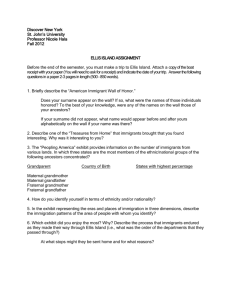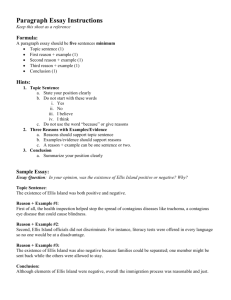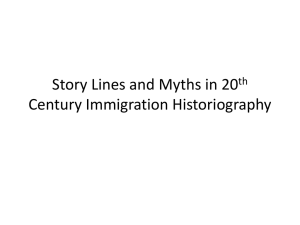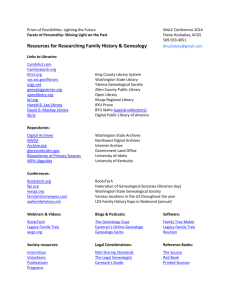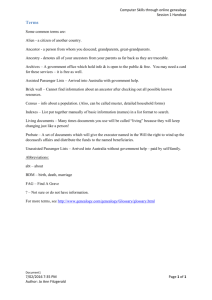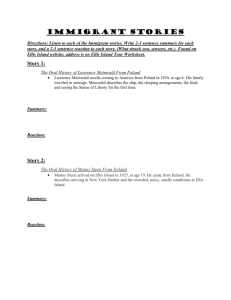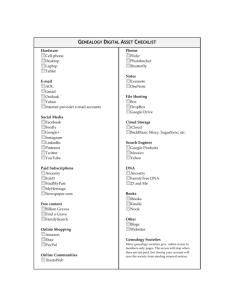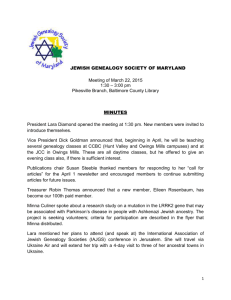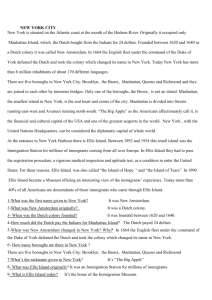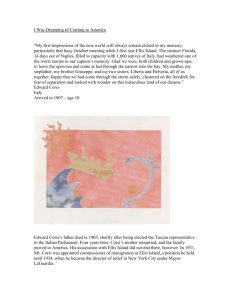Researching Family Histories at Ellis Island
advertisement
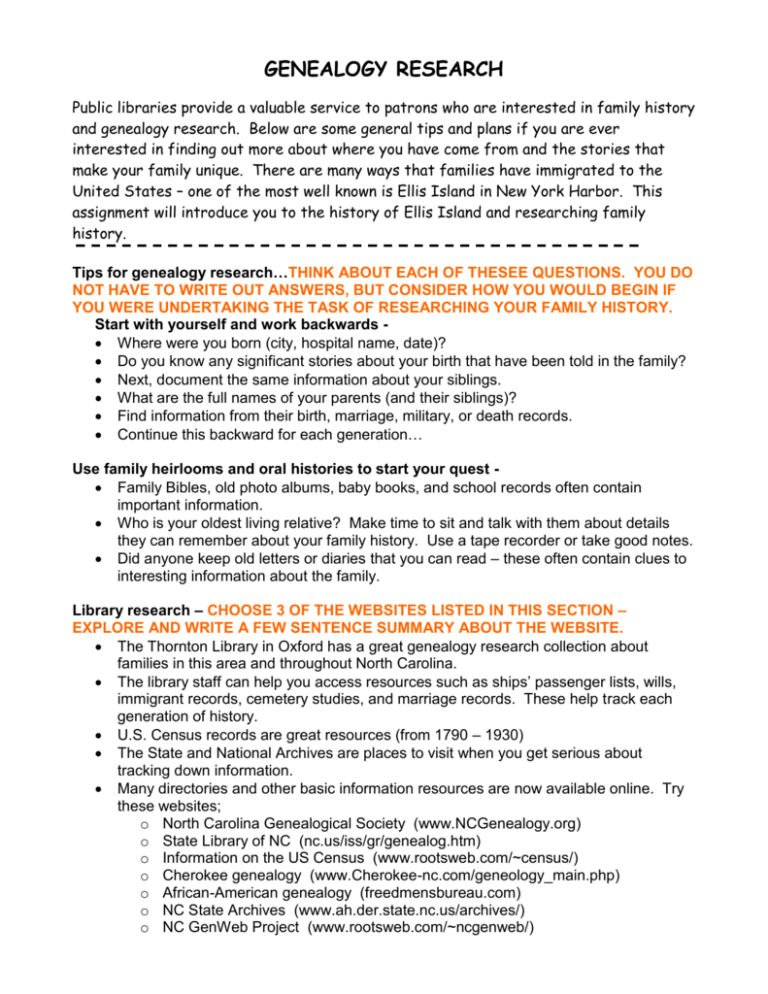
GENEALOGY RESEARCH Public libraries provide a valuable service to patrons who are interested in family history and genealogy research. Below are some general tips and plans if you are ever interested in finding out more about where you have come from and the stories that make your family unique. There are many ways that families have immigrated to the United States – one of the most well known is Ellis Island in New York Harbor. This assignment will introduce you to the history of Ellis Island and researching family history. Tips for genealogy research…THINK ABOUT EACH OF THESEE QUESTIONS. YOU DO NOT HAVE TO WRITE OUT ANSWERS, BUT CONSIDER HOW YOU WOULD BEGIN IF YOU WERE UNDERTAKING THE TASK OF RESEARCHING YOUR FAMILY HISTORY. Start with yourself and work backwards Where were you born (city, hospital name, date)? Do you know any significant stories about your birth that have been told in the family? Next, document the same information about your siblings. What are the full names of your parents (and their siblings)? Find information from their birth, marriage, military, or death records. Continue this backward for each generation… Use family heirlooms and oral histories to start your quest Family Bibles, old photo albums, baby books, and school records often contain important information. Who is your oldest living relative? Make time to sit and talk with them about details they can remember about your family history. Use a tape recorder or take good notes. Did anyone keep old letters or diaries that you can read – these often contain clues to interesting information about the family. Library research – CHOOSE 3 OF THE WEBSITES LISTED IN THIS SECTION – EXPLORE AND WRITE A FEW SENTENCE SUMMARY ABOUT THE WEBSITE. The Thornton Library in Oxford has a great genealogy research collection about families in this area and throughout North Carolina. The library staff can help you access resources such as ships’ passenger lists, wills, immigrant records, cemetery studies, and marriage records. These help track each generation of history. U.S. Census records are great resources (from 1790 – 1930) The State and National Archives are places to visit when you get serious about tracking down information. Many directories and other basic information resources are now available online. Try these websites; o North Carolina Genealogical Society (www.NCGenealogy.org) o State Library of NC (nc.us/iss/gr/genealog.htm) o Information on the US Census (www.rootsweb.com/~census/) o Cherokee genealogy (www.Cherokee-nc.com/geneology_main.php) o African-American genealogy (freedmensbureau.com) o NC State Archives (www.ah.der.state.nc.us/archives/) o NC GenWeb Project (www.rootsweb.com/~ncgenweb/) Researching Family Histories at Ellis Island From 1892 to 1954, over twelve million immigrants entered the United States through the portal of Ellis Island, a small island in New York Harbor. Ellis Island is located in the upper bay just off the New Jersey coast, within the shadow of the Statue of Liberty. Today, you will learn about many of the people who passed through Ellis Island and gain an understanding of how immigrants from around the world have shaped American culture. 1. go to www.ellisisland.org 2. take some time to search through some of the history, timelines, and background of Ellis Island on this interesting website 3. select GENEALOGY from near the top of the screen 4. select FAMILY HISTORIES from the menu 5. There are six stories of people who have researched their family histories through Ellis Island. Choose THREE to learn about – click on their picture, read the story, and write a brief summary of where each of the families immigrated from and several interesting facts you learned about each experience. 6. What do you know about your own family history? Some of you are 1st or 2nd generation American immigrants and some are from families who have been here for hundreds of years. Write a brief essay or interesting story about what you know of your family history (at least a page). Due Monday, February 13th.
